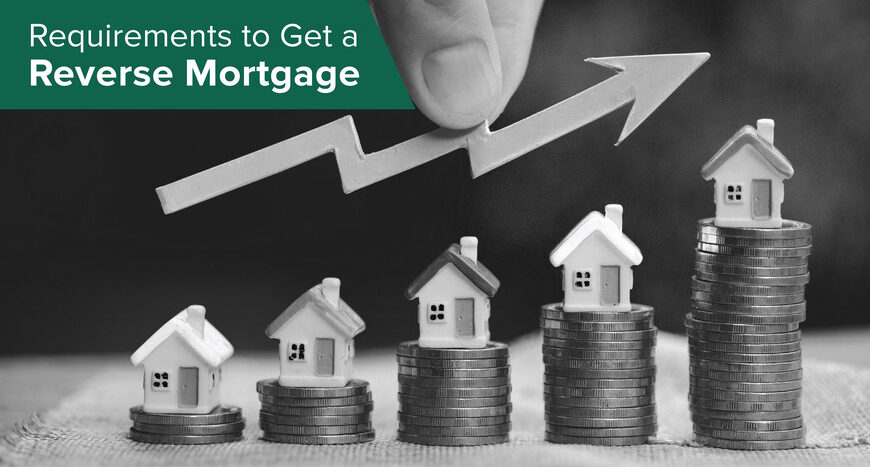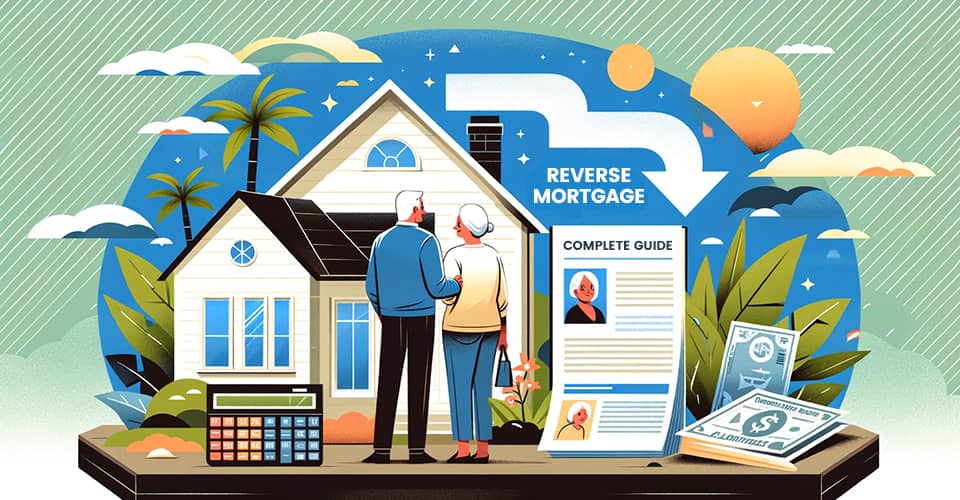Steps to Successfully Purchase Reverse Mortgage for Your Property
Steps to Successfully Purchase Reverse Mortgage for Your Property
Blog Article
Empower Your Retired Life: The Smart Method to Purchase a Reverse Mortgage
As retired life techniques, many people seek efficient techniques to enhance their monetary independence and wellness. Amongst these methods, a reverse home loan becomes a feasible option for home owners aged 62 and older, allowing them to use their home equity without the necessity of regular monthly payments. While this monetary tool uses numerous benefits, consisting of enhanced money circulation and the potential to cover crucial expenses, it is critical to comprehend the intricacies of the application process and vital considerations entailed. The next steps might disclose how you can make a knowledgeable decision that might significantly impact your retired life years.
Understanding Reverse Mortgages
Recognizing reverse mortgages can be essential for property owners seeking monetary flexibility in retired life. A reverse mortgage is an economic item that permits eligible homeowners, normally aged 62 and older, to convert a portion of their home equity into money. Unlike conventional home loans, where borrowers make regular monthly repayments to a loan provider, reverse home loans enable property owners to receive payments or a round figure while maintaining ownership of their residential or commercial property.
The amount available via a reverse home loan depends upon several elements, including the homeowner's age, the home's worth, and present rate of interest. Notably, the financing does not have actually to be paid back until the homeowner markets the home, relocates out, or passes away.
It is crucial for prospective customers to recognize the ramifications of this financial item, including the influence on estate inheritance, tax considerations, and ongoing duties connected to residential or commercial property maintenance, taxes, and insurance policy. Furthermore, counseling sessions with licensed experts are often required to make certain that customers totally comprehend the conditions of the car loan. Overall, a thorough understanding of reverse mortgages can equip homeowners to make informed choices about their monetary future in retired life.
Benefits of a Reverse Home Loan
A reverse mortgage uses several compelling benefits for qualified homeowners, specifically those in retired life. This financial tool enables senior citizens to transform a portion of their home equity right into cash money, providing crucial funds without the need for regular monthly home mortgage repayments. The cash obtained can be used for different functions, such as covering clinical expenditures, making home improvements, or supplementing retirement earnings, therefore boosting overall monetary versatility.
One considerable benefit of a reverse home mortgage is that it does not call for payment till the home owner relocates out, sells the home, or passes away - purchase reverse mortgage. This attribute enables retired people to preserve their way of life and meet unexpected expenses without the problem of month-to-month settlements. In addition, the funds gotten are typically tax-free, allowing homeowners to use their cash money without fear of tax implications
Furthermore, a reverse home mortgage can give tranquility of mind, knowing that it can act as an economic safety and security internet during difficult times. House owners additionally maintain ownership of their homes, ensuring they can proceed living in a familiar setting. Eventually, a reverse mortgage can be a strategic financial source, encouraging retired people to manage their funds properly while appreciating their golden years.
The Application Process
Browsing the application process for a reverse home mortgage is an important step for homeowners considering this monetary option. The initial stage includes assessing qualification, which normally calls for the home owner to be a minimum of 62 years of ages, own the residential property outright or have a low mortgage equilibrium, and occupy the home as their key residence.
As soon as eligibility is verified, house owners should undertake a counseling session with a HUD-approved therapist. This session makes certain that they completely recognize the implications of a reverse home mortgage, including the obligations involved. purchase reverse mortgage. After finishing therapy, applicants can proceed to gather essential paperwork, consisting of evidence of income, possessions, and the home's worth
The next step requires sending an application to a lender, who will certainly evaluate the monetary and property certifications. An assessment of the home will certainly likewise be carried out to establish its market value. If authorized, the loan provider will certainly present funding terms, which need to be reviewed thoroughly.
Upon acceptance, the closing process complies with, where final documents are signed, and funds are paid out. Understanding each phase of this application procedure can significantly enhance the home owner's self-confidence and decision-making concerning reverse mortgages.

Trick Considerations Before Investing In
Buying a reverse mortgage is a significant economic choice that calls for cautious consideration of numerous essential factors. Assessing your financial needs and objectives is similarly essential; identify whether a reverse home mortgage lines up with your lasting strategies.

Additionally, evaluate the effect on your current way of life. A reverse home mortgage can affect your eligibility for sure federal government advantages, such as Medicaid. Seek specialist assistance. Consulting with check this site out a monetary advisor or a housing therapist can offer valuable understandings customized to your individual situations. By extensively evaluating these factors to consider, you can make a more educated decision regarding whether a reverse home mortgage is the right financial technique for your retired life.
Making the Most of Your Funds
When you have actually protected a reverse home loan, effectively managing the funds ends up being a priority. The versatility of a reverse home loan enables house owners to use the funds in different methods, but strategic preparation is necessary to optimize their benefits.
One essential method is to develop a budget plan that outlines your monetary objectives and month-to-month expenditures. By identifying essential expenditures such as healthcare, home taxes, and home maintenance, you can designate funds accordingly to make sure long-lasting sustainability. Additionally, think about using a section of the funds for investments that can pop over to this web-site produce earnings or check appreciate gradually, such as mutual funds or dividend-paying stocks.
Another crucial aspect is to keep a reserve. Establishing apart a book from your reverse home mortgage can aid cover unanticipated costs, offering assurance and monetary security. In addition, seek advice from a financial expert to check out feasible tax obligation effects and exactly how to incorporate reverse home loan funds right into your general retirement approach.
Eventually, prudent monitoring of reverse home mortgage funds can enhance your financial safety, enabling you to appreciate your retired life years without the tension of monetary unpredictability. Careful planning and notified decision-making will make certain that your funds work efficiently for you.
Conclusion
In conclusion, a reverse home loan presents a feasible financial approach for senior citizens looking for to improve their retirement experience. By converting home equity into accessible funds, individuals can deal with crucial expenses and secure extra monetary sources without sustaining regular monthly settlements.
Recognizing reverse mortgages can be critical for house owners looking for financial adaptability in retired life. A reverse home loan is a monetary product that enables eligible house owners, generally aged 62 and older, to convert a portion of their home equity right into cash. Unlike traditional home mortgages, where debtors make regular monthly repayments to a loan provider, reverse home mortgages make it possible for property owners to get settlements or a swelling sum while preserving possession of their residential or commercial property.
On the whole, a detailed understanding of reverse mortgages can equip property owners to make educated decisions concerning their monetary future in retired life.
Seek advice from with a financial expert to check out possible tax implications and just how to incorporate reverse mortgage funds into your general retired life approach.
Report this page